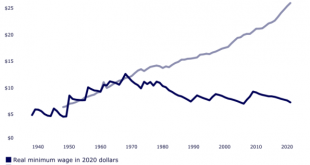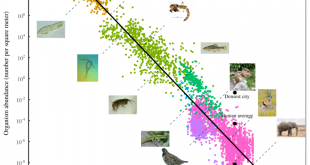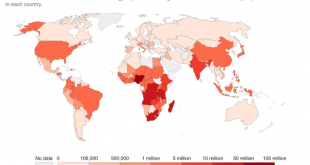from David Ricardo You don’t have to read Marx to understand the lack of power workers have under capitalism. But you do have to read beyond mainstream economists and economic pundits. You might turn, for example, to the business school. Yes, I know, that’s a strange assertion. But let me explain. The usual argument these days is that workers have acquired a lot more power because of the scarcity of labor. When labor is scarce (basically, when the quantity supplied of labor is less than...
Read More »Weekend read – Who’s in charge: us or our technology?
from Peter Radford So who is in charge? Who controls the flow of technology? Is it us? Or does the technology now control us? We live in a technology infused world. Our current civilization sits on a foundation accumulated through the past few centuries and built of machine power. We cannot separate ourselves from this cumulative support system without regressing to a pre-industrial way of life. Which is something few of us either want or are equipped to deal with. We have...
Read More »Keynes was not a Keynesian. He was a Post Keynesian!
from Lars Syll But these more recent writers like their predecessors were still dealing with a system in which the amount of the factors employed was given and the other relevant facts were known more or less for certain. This does not mean that they were dealing with a system in which change was ruled out, or even one in which the disappointment of expectation was ruled out. But at any given time facts and expectations were assumed to be given in a definite and calculable form; and...
Read More »dodo
The $26 an Hour Minimum Wage
from Dean Baker That may sound pretty crazy, but that’s roughly what the minimum wage in the United States would be today if it had kept pace with productivity growth since its value peaked in 1968. And, having the minimum wage track productivity growth is not a crazy idea. The national minimum wage did in fact keep pace with productivity growth for the first 30 years after a national minimum wage first came into existence in 1938. Furthermore, a minimum wage that grew in step with the...
Read More »Sapere aude!
from Lars Syll Enlightenment is man’s emergence from his self-imposed nonage. Nonage is the inability to use one’s own understanding without another’s guidance. This nonage is self-imposed if its cause lies not in lack of understanding but in indecision and lack of courage to use one’s own mind without another’s guidance. Sapere aude! “Have the courage to use your own understanding,” is therefore the motto of the enlightenment. Laziness and cowardice are the reasons why such a large part...
Read More »Weekend read – The evolution of ‘big’: How sociality made life larger
from Blair Fix The game I play is a very interesting one. It’s imagination in a tight straitjacket. — Richard Feynman Like Richard Feynman’s game of science, evolution is stuck in a straitjacket. It is driven by chance. But evolution is not free to explore every path. Take, as an example, the evolution of organism size. While it seems like there are many routes to bigness, I propose that there is fundamentally only one: sociality. In the march towards ever-larger organisms, there have...
Read More » Real-World Economics Review
Real-World Economics Review









